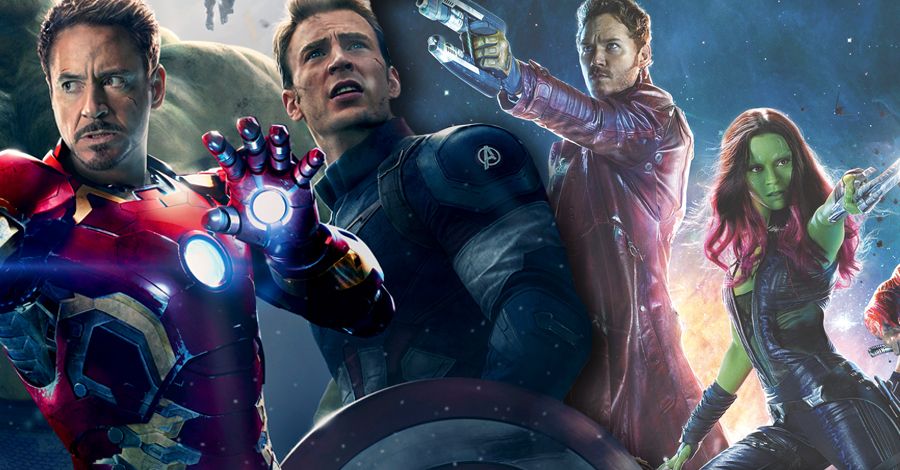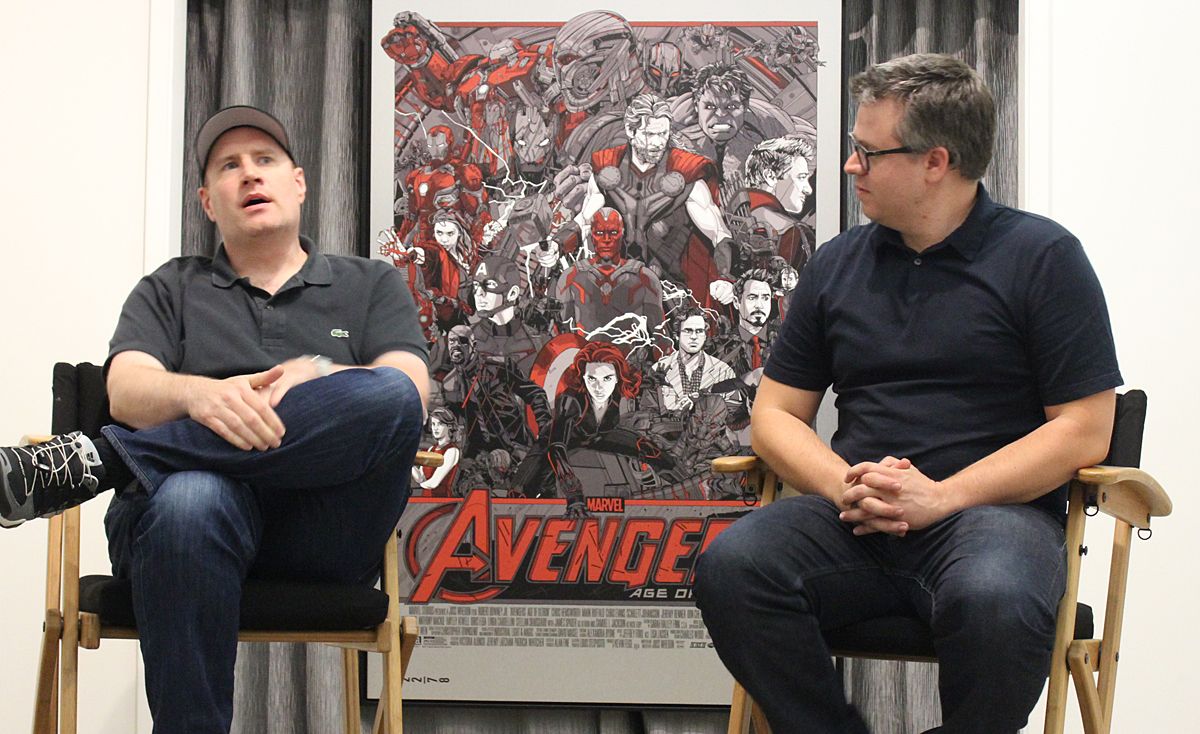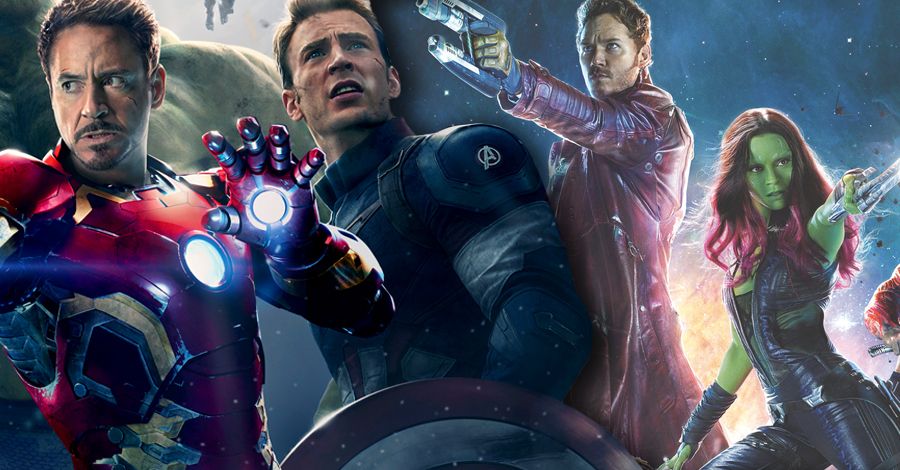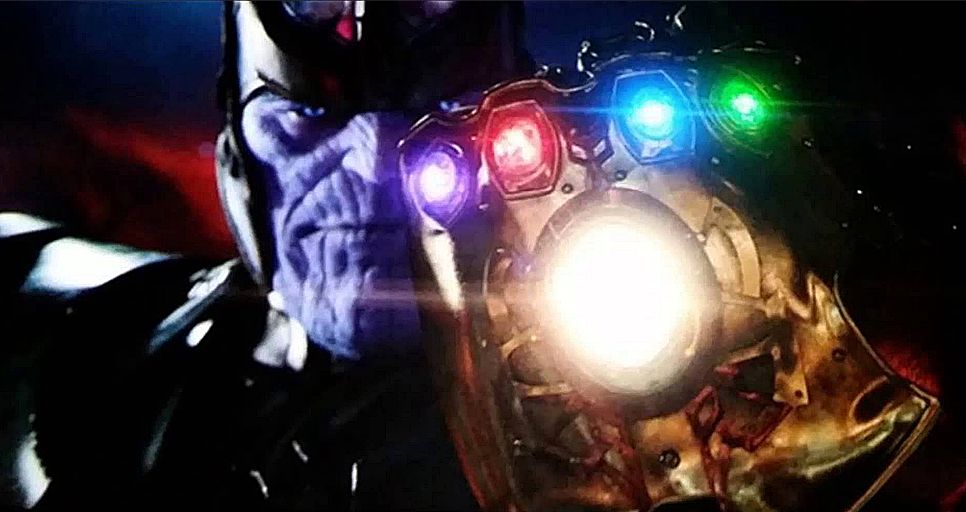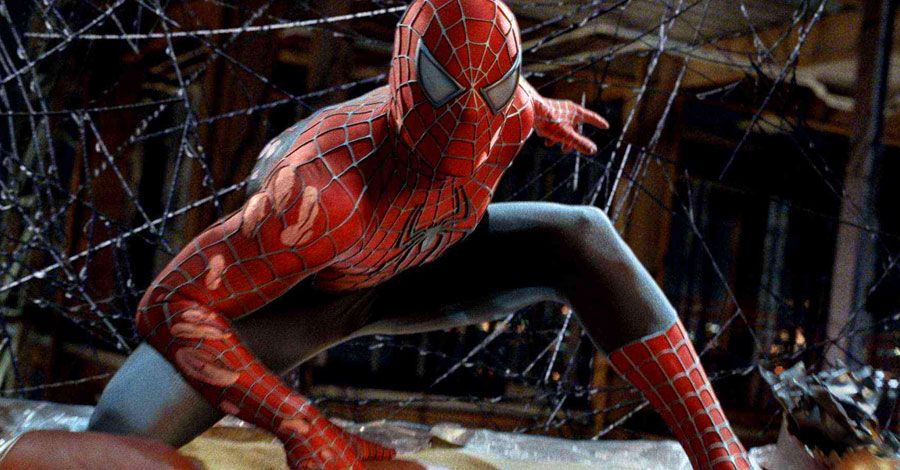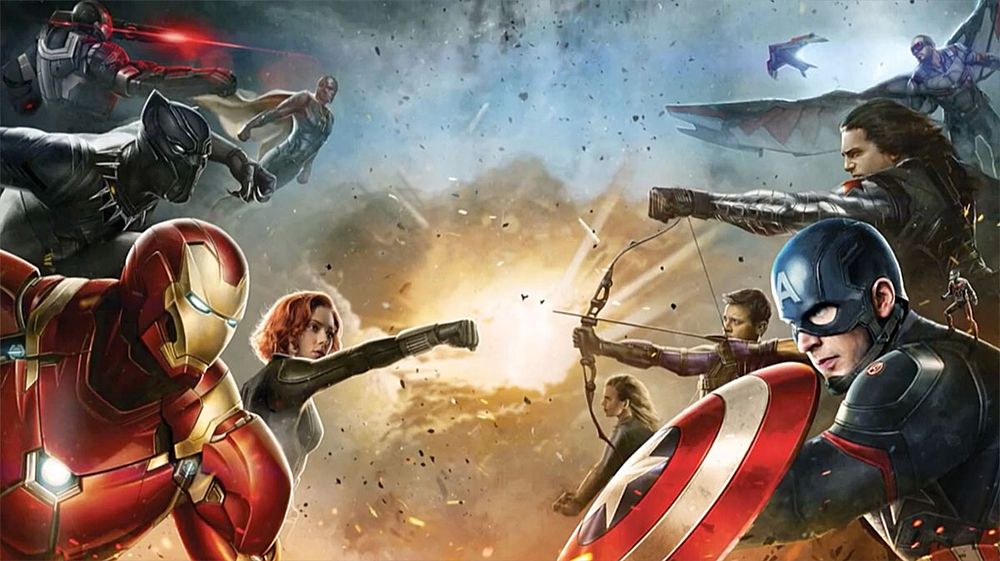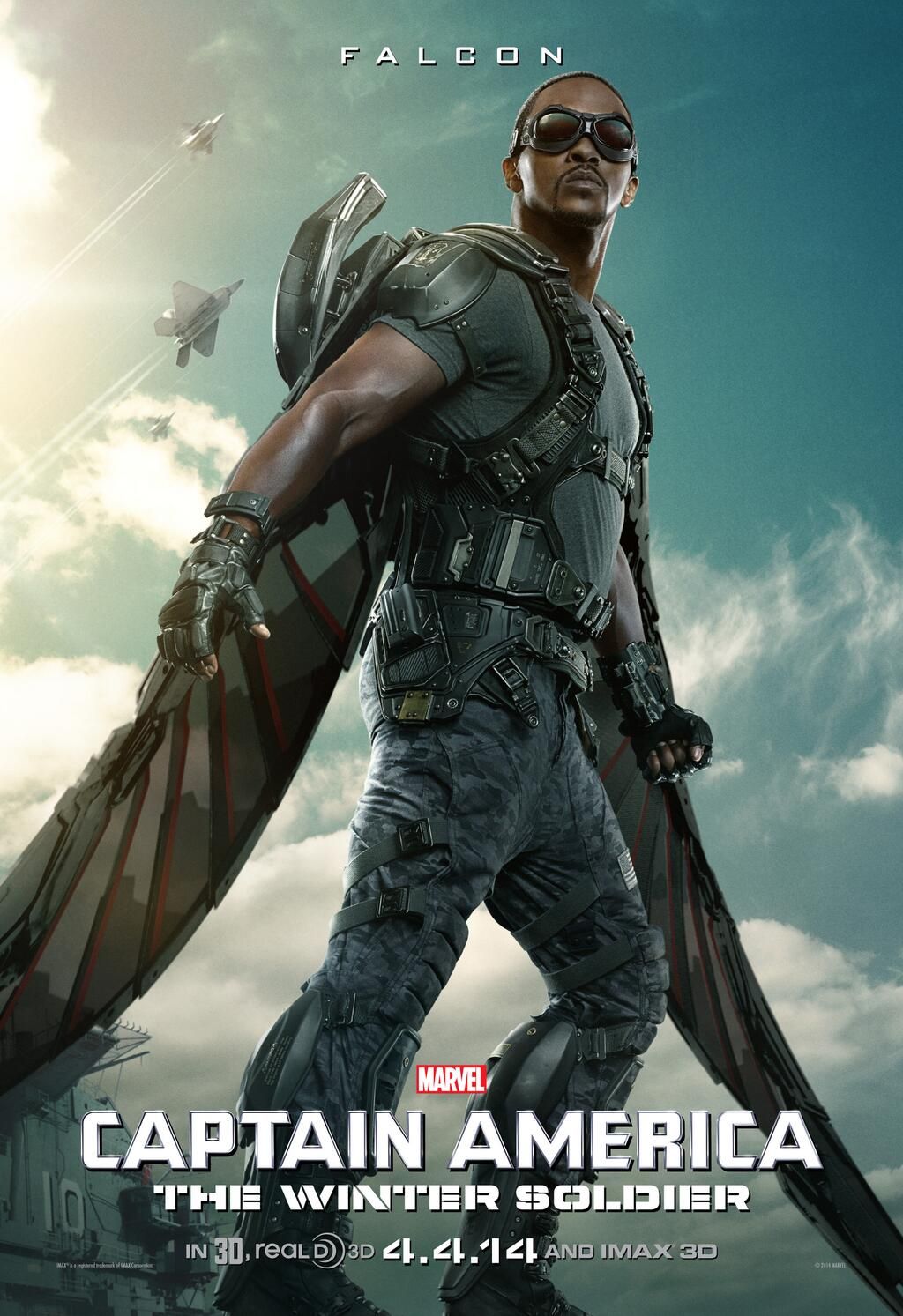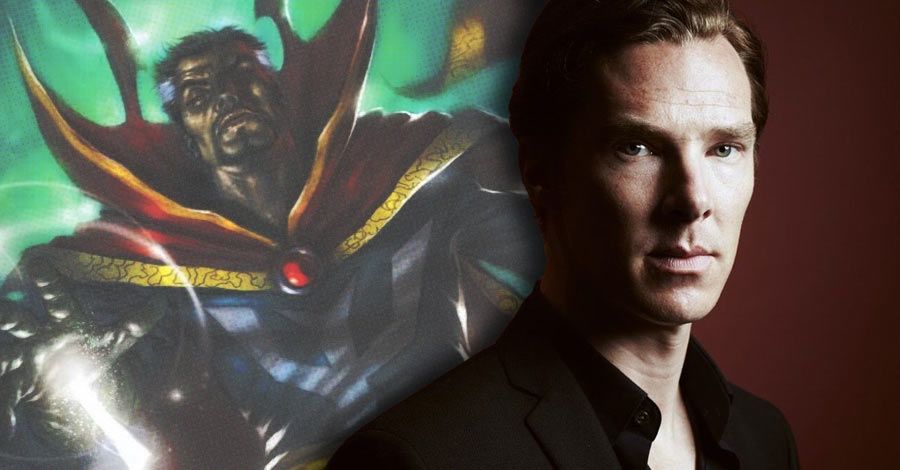Along with the filmmakers they collaborate with, Marvel Studios President Kevin Feige and Producer Jeremy Latcham ("Guardians of the Galaxy," "Avengers: Age of Ultron") rank among the primary architects of the Marvel Cinematic Universe.
Thus, when the two convened for a Q&A session during a presentation of the special features on the second "Avengers" film's forthcoming Blu-ray release and a screening of the film in Los Angeles, the questions from the press quickly expanded beyond the film itself to the ever-growing MCU, as the interconnected slate of films heads into its hotly anticipated Phase Three.
Kevin Feige Says Spider-Man "Belongs" In The Marvel Cinematic Universe
Throughout the session, which featured the debut of artist Tyler Stout's limited edition "Age of Ultron" poster, a number of revelations came to light. In addition to new details on "Captain America: Civil War" and the road to "Infinity War," finer points were put on lingering questions (the Infinity Stones, whether Captain Marvel's rumored cameo really originally part of "Age of Ultron"), and the producers' overall excitement over the introduction of Spider-Man into the cinematic tapestry became readily apparent.
This one's for both of you guys. Tony Stark has gone from the guy who laughed off Senate hearings and was hacking into S.H.I.E.L.D.'s secret vault, to now being somebody who's trying to look into artificial intelligence, to now, in "Civil War," being willing to adhere to some authority and government oversight of The Avengers. So I'm wondering if you could talk about that change in his mindset over the course of Phase Two leading into Phase Three.
Kevin Feige: Well, you just walked us all through it. It really is, in large part, the events of this movie that makes -- even Tony can be self-aware enough to go, "If I shared my plans with somebody, this might not have happened." I think we are seeing a Tony that is trying to become more smart. From the things that happen between the movies and are learned about in "Civil War," that make that even more personal. And of course, it's the exact same moment that Captain America's come to a point, having encountered HYRDA, having encountered the World Security Council, where he says, "We can't listen to anybody else. That's how corruption begins." And they don't get along.
Jeremy Latcham: Yeah, but I think responsibility is kind of the main theme for Tony, as he's kind of evolving as a character. I think, originally, he's a guy who had been part of some pretty terrible things and says, "I'm going to do everything myself, and that's the way I know it's right." It starts to run with that, and you see what happens. And maybe he balances a little. I think it's a really fun thing to watch a character grow up over the course of these movies. It works a line. I think it's fun to see it in the next one.
We saw this great featurette [on the "Age of Ultron" Blu-ray] where we finally run down all the Infinity Stones and where they came from and where they're going --
Feige: Not all of them!
My two questions are, how long in the plan was that designed by you guys? When the Cosmic Cube came out, was that [the plan] originally? Or was that an after-the-fact [idea]? And the second question is, when are we going to see the other two [Infinity Stones]?
Feige: You will see the other two sometime in Phase Three, for sure. There's a gauntlet that needs to be filled. And it really was sort of "Iron Man 2," and building the architecture of the entire Phase One,that that started to come about, and the notion of the Tesseract being not only the thing that ties Phase One together, but that also can be a part of all the things that tie Phase Two together. So I wouldn't say it was all perfectly planned and laid out in 2009, but that was the genesis of it. It goes back that far.
Latcham: I remember a conversation on the set: we had the prop master drawing the book that Tony starts flipping through when he's going through all his father's stuff. I remember trying to explain to the prop master, "No, no, this cube you're drawing, it's really important. It needs to be a certain way, because that's going to matter later."
Feige: Well, Howard Stark says on that film that Tony's watching in "Iron Man 2," "All you need to know is right in front of you."
In terms of creating a whole cinematic universe with kinetic elements like the Infinity Stone, with so many directors and writers and different people making the movies, how do you plot that out? How do you determine, "Oh, this stone is going to go with this character in this movie..." and sort of organize this whole massive thing that you're doing?
Feige: Well, some of it comes from the source material. The Cosmic Cube was always really important for Red Skull and for Captain America. We always knew in this film, "Age of Ultron," that there was one in Loki's scepter, and that was going to end up in Vision's forehead. And some of the other ones, like the orbs, come out of a structural plot need sometimes for a McGuffin, and the filmmaker will say, "Okay, there's this orb in this," and "We'll go, okay, let's put something inside that orb and have it tie in to the larger mythology.
Latcham: I think one of the keys is just to kind of let people -- we always want the filmmakers to go make the movie they want to make, and not let too much of the craziness of the world get in the way of it. And then, afterwards, we've got to look and go, all right, let's make sure everything lines up now and do any correction. But I think the main thing is to make the film stand on its own and be as fun as possible and be as good of a ride as possible for the audience. Trying to do both: trying to do the housekeeping and make sure we're building the bigger universe, also selling a fun movie, first and foremost.
RELATED: "Captain America: Civil War" Concept Art Reveals Warring Factions
When it comes to selecting writers and directors to pair up with the vision and ideas that you want to present, what do you look for? Are you looking for someone who is going to speak to specific properties, or do you have in mind the Infinity Stone aspect of it as well?
Feige: No, we always usually have a kernel of an idea of what we want. A story, or even just a tonality of a particular movie. We're hiring on filmmakers right now, and it really comes down to numerous meetings -- Jon Watts is the most recent one, on "Spider-Man." -- numerous meetings where we sort of pitch them what we think the movie could be, and then we start a discussion. And if over the course of three or four or five meetings they make it way better than what we initially were spewing to them, they usually get the job.
As you move closer to the big culmination with "Infinity War," how much planning has already been done toward the end? Because this is one big tapestry at this point that's going to conclude there. Have you thought out a lot of the story already?
Feige: Yes, in broad strokes. Sometime, in super-specific things. But for the most part, in broad strokes that are broad enough and loose enough that, if through the development of four of five movies before we get to the culmination, as you say, we still have room to sway and to move and to go and to surprise ourselves in places that we end up. So that all the movies, hopefully when they're finished, will feel like they're all interconnected and meant to be and planned far ahead, but really can live and breathe enough as individual movies to be satisfying each and of themselves.
In the Infinity Stone featurette, you describe the two parts of "Infinity War" as a culmination. As this is something we've been building for three phases, how much are you guys doing that as an end, versus a set up for Phase Four? And how can you top that?
Latcham: Well, I think it definitely is an end to some version of the team that we've come to know as The Avengers. Who knows exactly what's going to happen yet in that film, but I think this version of that team -- and I think we started to hint at it at the end of "Age of Ultron," that the team will be evolving. And one of the things we love in the comics is that the roster is always changing. That new people are coming on to the team, and that you could pick up an Avengers book ten years later and you don't recognize people on the cover. But the ideas and the ideals and things that make the Avengers the Avengers, still exist, and I think that's part of what this culmination will be. We're seeing this version of the team doing this thing to save the universe, the galaxy, however you want to put it, and we'll kind of see where that goes. It's not the end of the Marvel Cinematic Universe, but I think it is the end of part of it, for sure. We're still trying to sort out which parts.
To that point, I wanted to ask about the new Avengers scene in "Age of Ultron." Can you talk about how you decide which characters would be a part of that team? How you shot it? And did the evolution of that change throughout production and post production?
Feige: Well, for the most part, it was based on the story Joss was telling with Thor going back to start an investigation, and finally realizing something bigger was going on here, being played in a certain way, wanting Hulk to go off to parts unknown at the end, and then, to bring in some of the other characters we introduce in phase two. You may be alluding to a rumor about Captain Marvel showing up in that. At one point, it might be one draft, where -- it might have been just Captain Marvel, and we shot a plate that was maybe going to add her in there. But the truth is, it didn't seem appropriate to just have this new person and new costume literally come out of nowhere at the end of this story. It would have been a disservice to what, by the time this movie was coming out, people already knew what was coming anyway, and the way we could really do it justice.
Latcham: In really early development, there was a notion of like, there'd be a ton of new people. And then it was like, we haven't really introduced them, we don't know where they come from. Joss kind of did not love that idea after meeting. It was an early discussion, then it kind of became, it would just be Captain Marvel, and then that felt weird. Just to have one new person. The guys go, what?
Feige: Also, the subtext was, what does Cap say? "They're not the '27 Yankees." Well, if Captain Marvel's there, what are we saying about her? They need to be, certainly Wanda and Vision, and to a lesser extent, Falcon and Rhodey, need to sort of learn what it means to be a team. Even the most dysfunctional team in the history of the universe.
Speaking of the new Avengers, there are a couple Avengers who are pretty upset with Tony throughout "Age of Ultron." Everybody seems pretty cordial with him towards the end. Are there a couple of them that are actually happy to see him go?
Feige: I don't know if there's anybody overtly happy to see him go. He's still funding the whole thing. He's not necessarily going too far. He's funding that whole operation on his father's old warehouse as we learned. So no, I don't think there's a sense of good riddance.
It took a couple views before I noticed it, but in Iron Man's vision, the Avengers aren't the only people that have fallen. There were a couple of soldiers there, is that something that we'll learn more about? Or is that just set dressing?
Latcham: I don't think it's set dressing. I mean, the idea was always, whatever this big thing is, it won't just be Avengers that have to pay the price to save everything. At least that was kind of the idea in that vision. The question I think for going forward with "Infinity War" is, were those little visions? Is that kind of like your worst fears being projected at you? Is that a prediction of the future? Or is that a sense of an ending doom that haunts you and keeps you awake at night? I think that'll be something we have to explore in "Infinity War" to kind of figure out how literal or not those are. I think it's more, probably if I was to guess, it's more his fear. That the other people are paying the cost for what he's done.
Leading from that into "Captain America: Civil War," at this point it's a massive cast, but it's also probably the most character-driven story that Marvel has done so far, because it's not about fighting cosmic powers, it's about brother versus brother. How do you balance that aspect of trying to really get into the characters and bring out that aspect versus the action of having such a huge cast with everybody having a part?
Feige: Well, that's a balance that we have to ride in a lot of these movies, now. In "Civil War" in particular, it is very much Cap's story. It is very much a sequel to "The Winter Soldier." And as that conflict builds, it is represented as a conflict between Captain and Tony. There are a lot of characters in "Winter Soldier," but it felt like a very singular and relatively simple thrill. "Civil War" follows in that same way. I think that's something the Russos pride themselves on, and our screenwriters, Chris Markus and Stephen McFeely are excellent at giving each character just enough. Not full arcs for everybody -- it's just enough so that their presence is felt, and is important, but that the very clear, simple story that is being told is being served at all times.
The question I have is about the intersection of the Marvel TV universe and the film universe. We've seen a lot of references in "Daredevil" and "Agents of S.H.I.E.L.D.," and I'm assuming the other other shows that are coming, to what's happened in the films. Are we going to see references to the events of the TV shows in any of the movies?
Feige: I think that's inevitable at some point, as we're plotting the movies going forward and the shows. The schedules do not always quite match up to make that possible. It's easier for them. They're more nimble and faster and produce things quicker than we do, which is one of the main reasons you see the repercussions of "Winter Soldier" or "Age of Ultron" in the show. But going forward and as they get to do more shows, and cast them with such great actors they have, particularly in the "Daredevil" show, that may occur. A lot of it is, by the time we start doing a movie, they'd be mid-way through a season. By the time our movie comes out, they'd be done with the second and starting the third season. So finding the timing on that is not always easy.
Is the gauntlet that Thanos has at the end the same one from Odin's treasure room? And if so, will we see how he relocated it from there?
Feige: Is everybody getting a [Tyler Stout] poster, or is it the person with the nerdiest question? Because it was -- sir, it's a great question. It's a good question. I may as well answer because you asked it, which I like. It's not the same one. Not the same one.
Can you talk about what it meant to you to be able to include Spider-Man in the Marvel Cinematic Universe at last? Tell me what it meant to you, what it means to the MCU in general to have that sort of flagship Marvel character.
Feige: Making that agreement with [Sony heads] Amy [Pascal] and Michael [Lynton] and Tom [Rothman] at Sony was great. It was really amazing. On a personal level, making these movies, it means a lot because I think we can do great things with Spider-Man. I think Spider-Man can serve a great purpose in our universe, and that's breaking walls, and that's what unique about the comics. It's not that he was the only superhero in the world. It's that he was a totally different kind of superhero when compared against all the other ones in the Marvel Universe at the time. That's really exciting.
Also, on a personal, having worked at Marvel for 15 years and started my career on "X-Men" movies with Tom Rothman and those early "Spider-Man" movies with Amy, to have earned their trust, for them to say, also was great, meant a lot. And now, we better not screw it up.
You talked about the grand plan changing along the way. Obviously, Spider-Man came along and that's changed things. I wondered if how his presence will be felt leading up to "Infinity War." Will he be involved with "Infinity War?" How does someone you're introducing this late in the game?
Feige: Well, I don't know if it's late in the game. I think Vision and Wanda just showed up and played an important part. Black Panther is showing up, as you know. So it's not about when you show up, it's about what you do once you're there.
Creatively, behind the scenes, how does inserting him into the plan that you have affect things?
Feige: The short answer is, the most important thing is to stand alone. Relaunching Spider-Man in his own standalone movie with new story lines, he fits into this universe. That is job number one for us. And as is the case as Jeremy was saying earlier, the connectivity is great, but it doesn't drive the train.
That being said, if I understand what you're asking, this has been a dream of ours for a long time. And we always had contingency plans, which we always do anyway. "Are we going to be able to make another movie with this actor? If so, we're going to do this, If not, we're going to do this. If we get the rights to a certain character, that'd be great, we'll do this. If not, we're going to do this." So we always sort of operate with those various alternate timelines available and ready to shift if something happens.
How are you going to approach the time before his becoming a superhero? How long has he been Spider-Man once we meet him?
Feige: You'll learn all those things in the movie.
The Guardians of the Galaxy are some of the only big characters that have been introduced thus far that haven't directly touched our main set of characters. So looking to "Guardians 2," and going forward, how long is it going to take before they do intersect? If it's in a post-credits scene or whatever with our core Earth characters, or will they intersect with other characters we're introducing first?
Feige: Well, it's a good question. Certainly, Thanos, clearly, and the Infinity Stones are the link between all those movies, and especially "Guardians." So I do think there'll be more crossover into that sector of the Marvel literal Universe. When and if those specific characters start switching remains to be seen. The "Guardians 2" team just left for Atlanta on Monday to start that movie, so all of the "Guardians" effort and thought is going into "Volume 2." Which, by the way, is shaping up extremely nicely.
How does Howard the Duck make it back to Earth?
Feige: Does he want to come back to Earth? It didn't work out so well for him last time he came to Earth.
Now that work's being done in Atlanta for pre-production on "Guardians Volume 2," "Doctor Strange" is getting ready to start shooting in November, how close are we to some more casting announcements on those two films?
Feige: I think it'll be pretty quickly. I think there'll be quite a slew of casting announcements over the next few months. Before the end of the year. I think on those two films, and some other films.
There's a lot of talk in Hollywood right now about more representation for women and for characters of color. Of course, we have quite a bit of those coming out both on Netflix and in theater. We have "Captain Marvel," "Jessica Jones," "Black Panther" all happening. Is there any sort of outside pressure to make sure, in how you're presenting those characters, making sure that the stories are being told in ways that are respectful? Especially after some of the backlash that Black Widow received for "Age of Ultron?"
Feige: Well, I think there's always concern. If Joss were here, he would tell you all about that, what the story of Black Widow was, and what she was clearly saying in the scene, in this movie. But there's always that pressure. There's that pressure with all the characters. When you're dealing with, as I have for many, many years, with characters that are this loved and this respected in one form, including when I started, which was sort of the dawn of Internet feedback and talkback and things. It was, "Oh, 'X-Men' -- you know it's going to suck because it's a Marvel movie." That was the sentiment based on what occurred before that. So there's always been a pressure of, "Let's not screw it up."
And I think the added pressure of -- so that would exist with Black Panther, that would exist with Captain Marvel, just as it does with Spider-Man, just as it does with Iron Man, or anything else. Then, there's the added pressure of just staying current with the times. Representing on that big screen what exists in the world around us. That's one of the things we're most excited. As the comics, frankly, have done a good job of doing. And if you look back at the '60s, being ahead of the curve in a lot of areas. So we want the movies to get to the point where they're ahead of the curve on those issues as well, and I think we'll be up there sooner than you might expect.
Speaking of the comics, how far ahead have you guys looked at things that are happening currently? Thing like the Falcon/Captain America. Do you guys jot down notes of characters that you want to use in Phase Four, Five, Six, however far ahead?
Feige: Yeah, I mean, I think whenever something interesting happens in the comics, whether it's something big, like character-shifting like Thor has done, or Captain America has done lately, or even just a small image in a panel of the comic has introduced to us, we've filed away to see if it can play a part in one of our stories. I remember sitting around board meetings, back when Marvel was its own company and had a board, and the board members talking about the new issue of "Civil War" that was coming out, and the excitement of how that story was going to come out. They're thinking, it'd be great to make a movie out of this someday. And now that we've done that, it's unbelievable. So that's a big case, of course. Same thing with "Winter Soldier." So in big ways and small ways, of course, this all starts from the House of Ideas in New York.
Latcham: If you think about it right now, I was at the "Infinity War" meeting with the Russos earlier today, and there is really old [Jim] Starlin stuff, there is really new [Jonathan] Hickman stuff. There's all kinds of stuff sitting on this table, and it's really kind of chaotic. Like, "Oh, there's a great image here, there's a great moment here. Let's talk about all of them. Let's make sure that we're looking at everything." I think that's part of what's fun. It doesn't matter when it's written in the books. If it's great, it's great, and we want to find a way to put it in the movie. It's part of the job, part of the fun.
Have there been any discussions about bringing back "Marvel One-Shots" at some point?
Feige: We talk about it a lot, actually. When we had fables like that, when we're talking about "What are we going to do with Howard? What are we going to do with Cosmo? We could do a One-Shot with Michael Pena." The universe is big, and we're moving up to three movies a year this year. I don't know how much beyond that we can go. "One-Shots" are always great for, "Hey we have this little idea. It would be fun to see Trevor Slattery again, and the real Mandarin is real mad." So we do talk about it a lot. We are a relatively small team. We're comfortable now doing three movies a year. It's just about finding the time and the place. There's a backlog of ideas.
Latcham: There's a lot of ideas.

